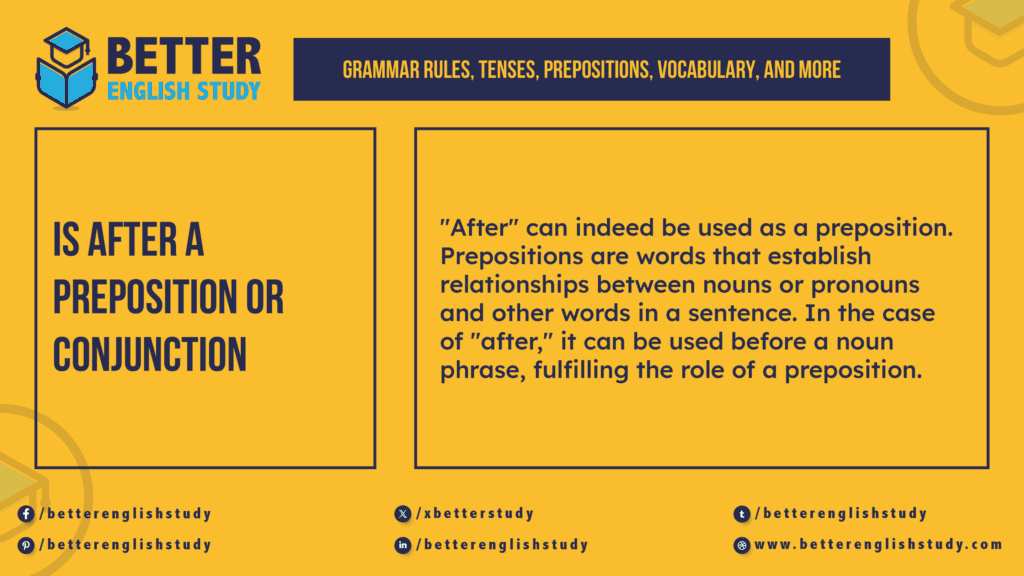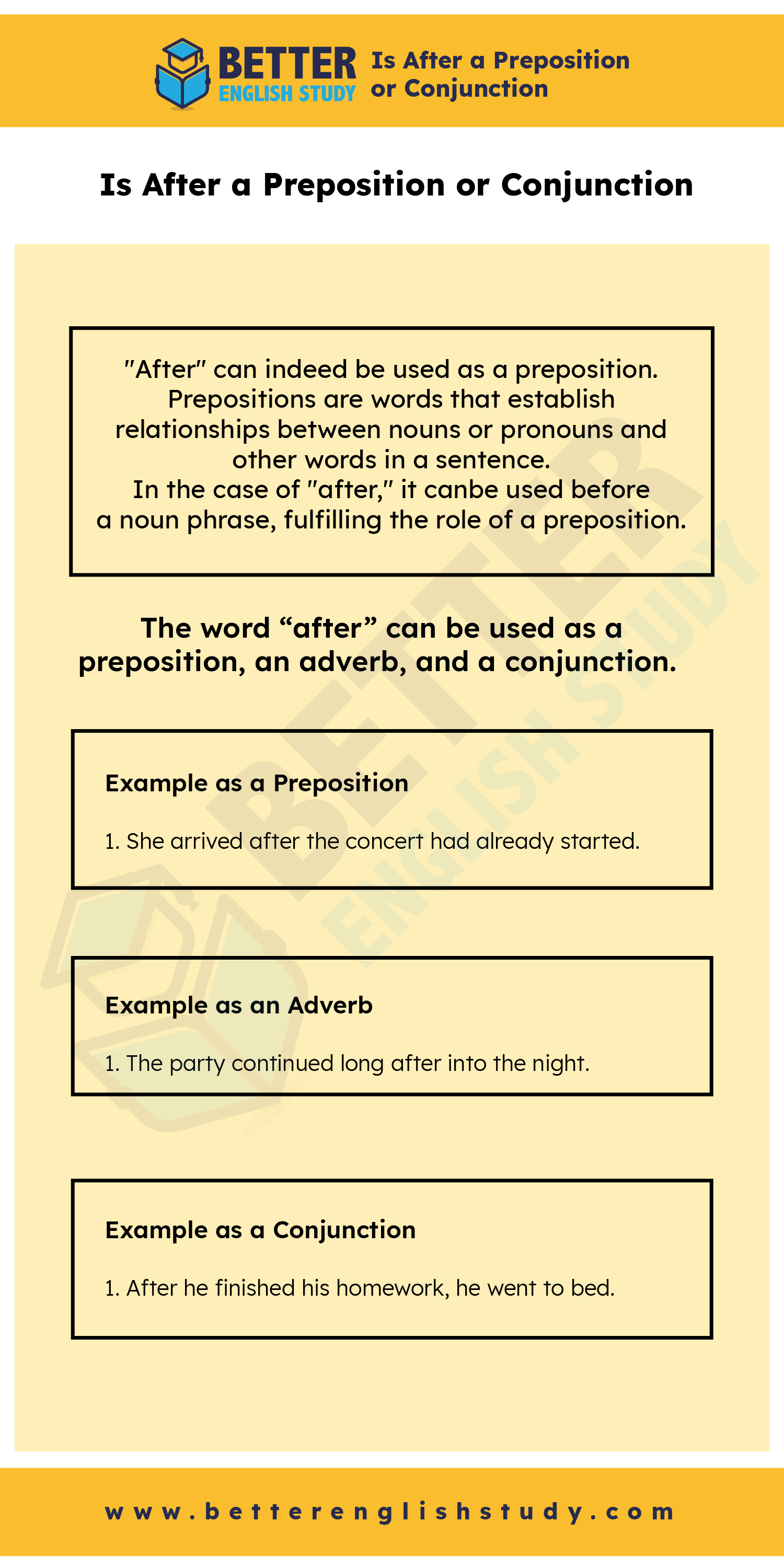
In the intricate tapestry of the English language, certain words play versatile roles, often leaving language learners pondering their varied applications. “After” is one such word that can function both as a preposition and a conjunction, adding layers of complexity to its usage.
In this article, we will unravel the dual nature of “after,” shedding light on its roles and offering clarity to those navigating the realms of English grammar.
Is After a Preposition?
Yes, “after” can indeed be used as a preposition. Prepositions are words that establish relationships between nouns or pronouns and other words in a sentence. In the case of “after,” it can be used before a noun phrase, fulfilling the role of a preposition.
Versatility of “After”
The word “after” can be used as a preposition, an adverb, and a conjunction. This versatility adds layers to its usage, making it a dynamic and indispensable part of English grammar.
Example as a Preposition:
- She arrived after the concert had already started.
Example as an Adverb:
- The party continued long after into the night.
Example as a Conjunction:
- After he finished his homework, he went to bed.
“After” as a Subordinating Conjunction
Besides functioning as a preposition, “after” can also play the role of a subordinating conjunction. In this capacity, it introduces a subordinate clause, indicating a relationship of dependence or subordination.
Example of a Subordinate Clause:
- After the storm passed, we went outside to assess the damage.
In this sentence, “after the storm passed” is a subordinate clause that depends on the main clause “we went outside to assess the damage.”

“After” Depicting Time Relationships
Another critical role that “after” plays is in illustrating how something will occur during a certain time. This temporal function adds precision to expressions, clarifying the sequence of events.
Example of Time Relationship:
- They plan to leave for the airport after breakfast.
In this context, “after breakfast” signifies the specific time when the action of leaving for the airport will take place.
In conclusion, “after” is a versatile word in the English language that transcends the boundaries of a single grammatical category. Yes, “after” can be used as a preposition, elegantly connecting nouns and pronouns with other elements in a sentence.
Its adaptability as an adverb, conjunction, and subordinating conjunction adds richness to its usage. Whether conveying temporal relationships or introducing subordinate clauses, “after” proves itself to be an essential component of effective communication in English.
So, the next time you encounter “after” in a sentence, appreciate its multifaceted nature and the nuanced roles it effortlessly embraces.
